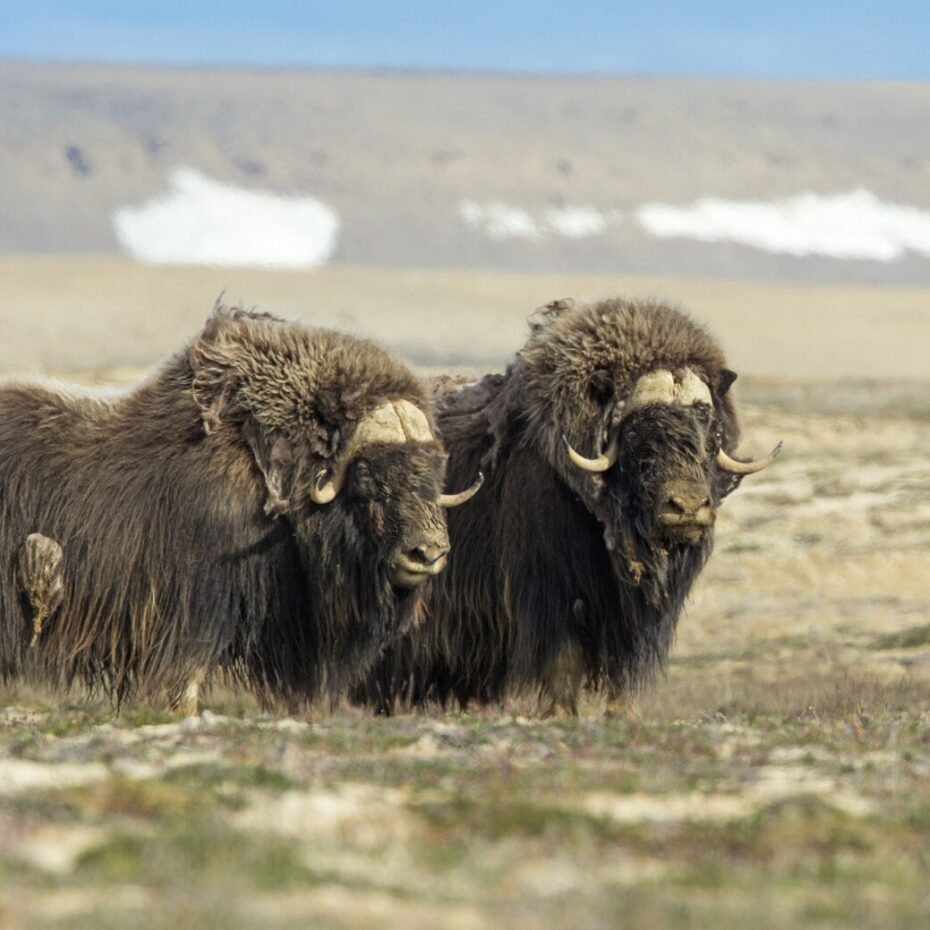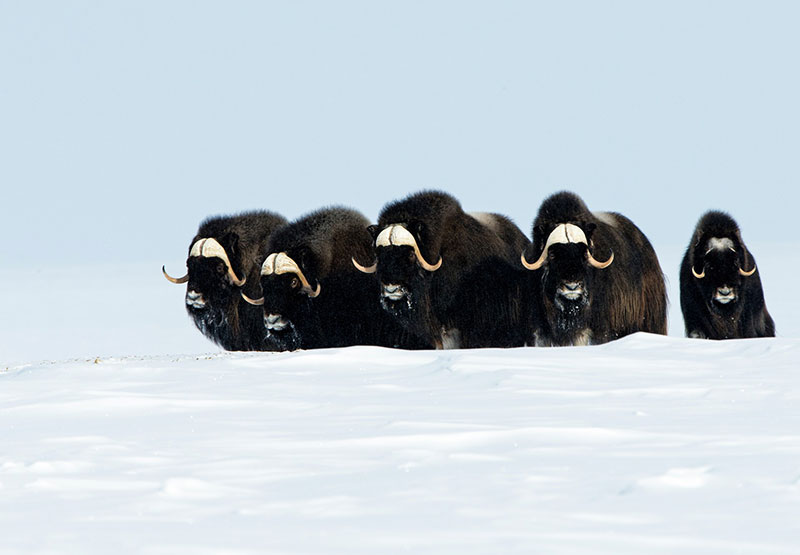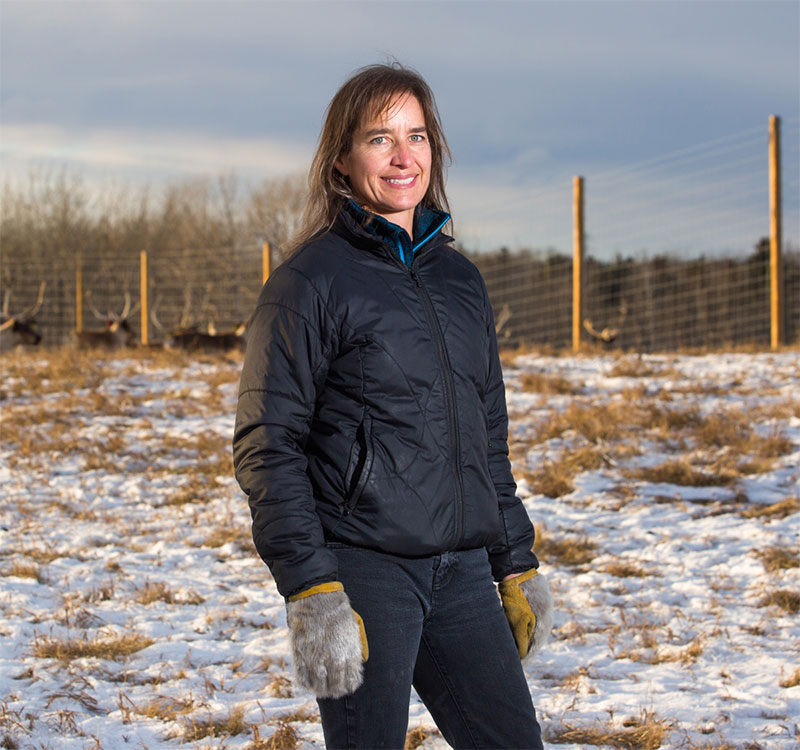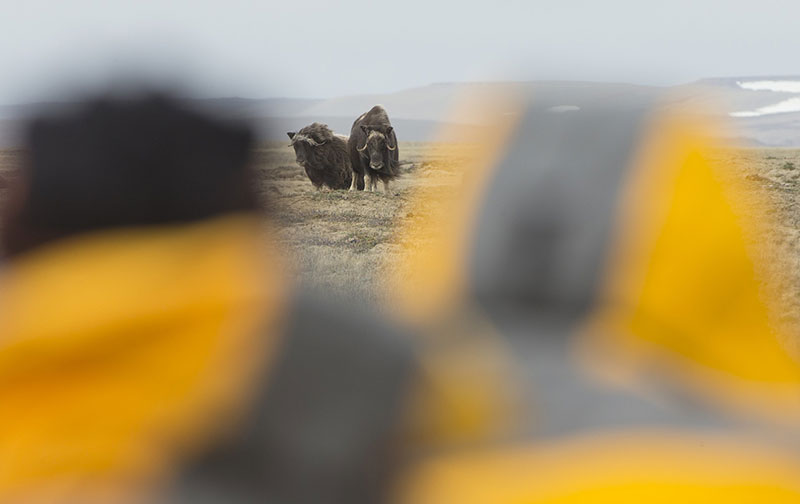PILOT RESEARCH PROJECT ON SOMERSET ISLAND MUSKOX
Arctic Watch

Arctic Watch
January 27, 2020 | Arctic Watch
We believe that our lodges and adventures should not only serve as incredible springboards for guests from across the globe to experience adventure, but also as platforms for credible scientific research to better understand the changing eco-system of Canada's Arctic landscapes, flora and fauna.
The Weber Arctic team is very pleased to announce that we will be facilitating a pilot research project on the climate associated range expansion of various lungworms and bacteria that may be affecting muskoxen in the Canadian Arctic.

From July 2nd-11th 2020 at Arctic Watch Wilderness Lodge, we will be hosting Dr. Susan Kutz, a Veterinarian and Professor in the Department of Ecosystem and Public Health at the University of Calgary Faculty of Veterinary Medicine, and a team of researchers to begin looking into the possible arrival of these parasites and bacterias in the muskox population on Somerset Island. This project will be in partnership with the Nunavut Department of Environment.

With increasingly hospitable conditions for southern species, it is being observed that new parasites are beginning to appear in the Arctic, including Umingmakstrongylus pallikuukensis, known as the muskox lungworm. Due to harsh conditions and isolation thanks to the islands that most of the arctic animals live on, the tundra hosts much less biodiversity than the southern biomes. This makes any introduction of new species, whether it is parasitic or simply a competitor for food, a possibly catastrophic event.
With this in mind, the team of researchers has determined a series of non-invasive research methods to survey the health of the muskox near our lodge. The methods are summarized below:
1. The collection and analysis of fecal pellets will provide important data on whether or not the lungworms have spread to Somerset. The pellets will also be used for genetic research and diet analyses.
2. Qiviut sampling: Qiviut is the inner wool of the muskox, fundamental to surviving the harsh winters. The team of researchers has pioneered a method to measure cortisol (stress hormone) and trace minerals (essential for growth, reproduction, and immune function) as an indicator of muskox health.
3. Investigation into any mortalities that have occurred on the Island. Dr. Kutz will use this investigation to provide us with an action plan in case of any large scale mortalities in the future.

Guests at Arctic Watch during the week of July 2nd-11th will be invited to help collect Qiviut to be used in the research.
Previous studies led by Dr. Susan Kutz have identified the muskox lungworm and Erysipelothrix rhusiopathiae (bacterium) in the Arctic, particularly on the Banks and Victoria islands. These troubling findings just to the west of Arctic Watch is what moved us to invite Dr. Kutz to research the muskox herds near us.
Check out our July 2nd-11th Arctic Watch trip here.
Written by: Donny Boake
We understand that booking a trip like this is a big endeavour. Please reach out to us with any questions that you might have regarding your upcoming adventure.